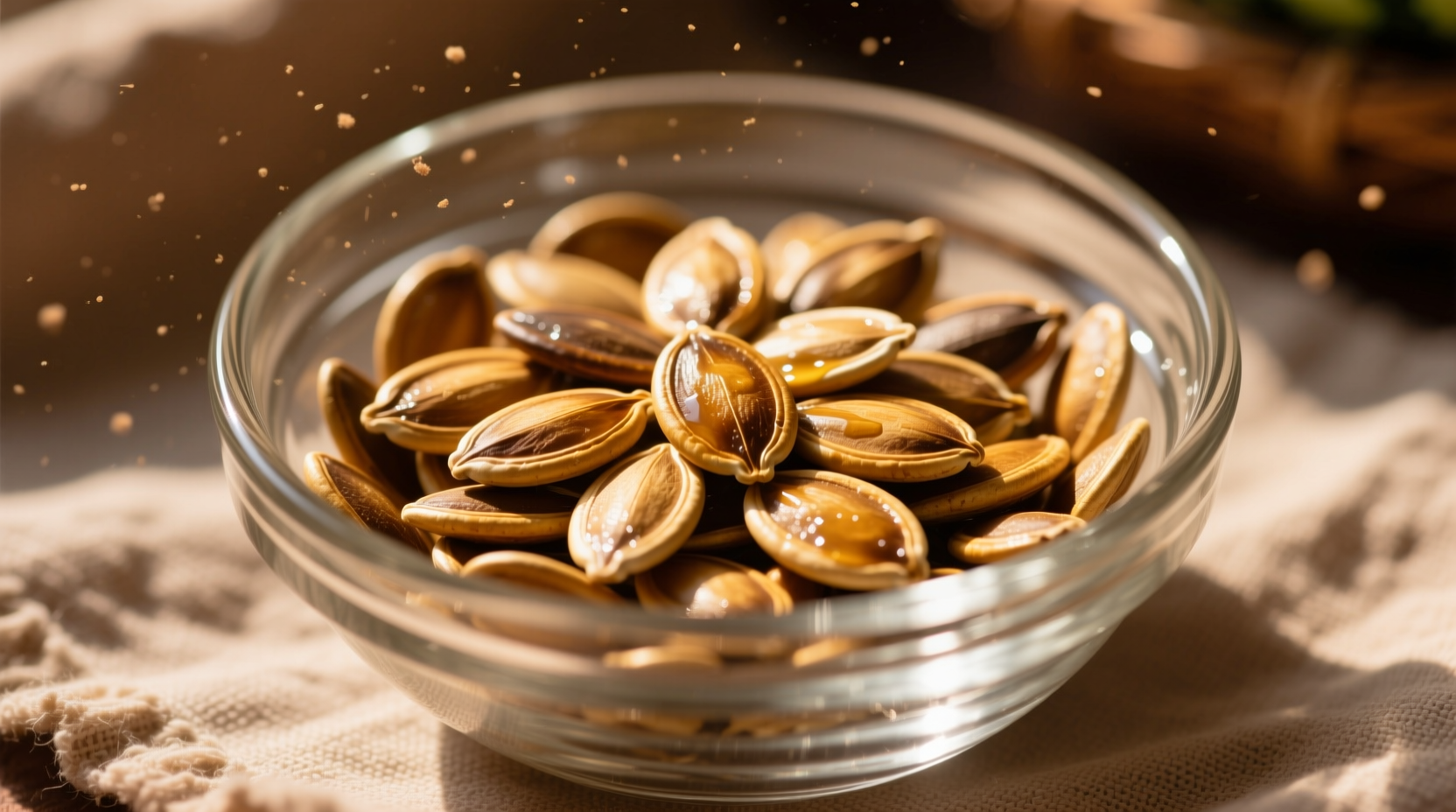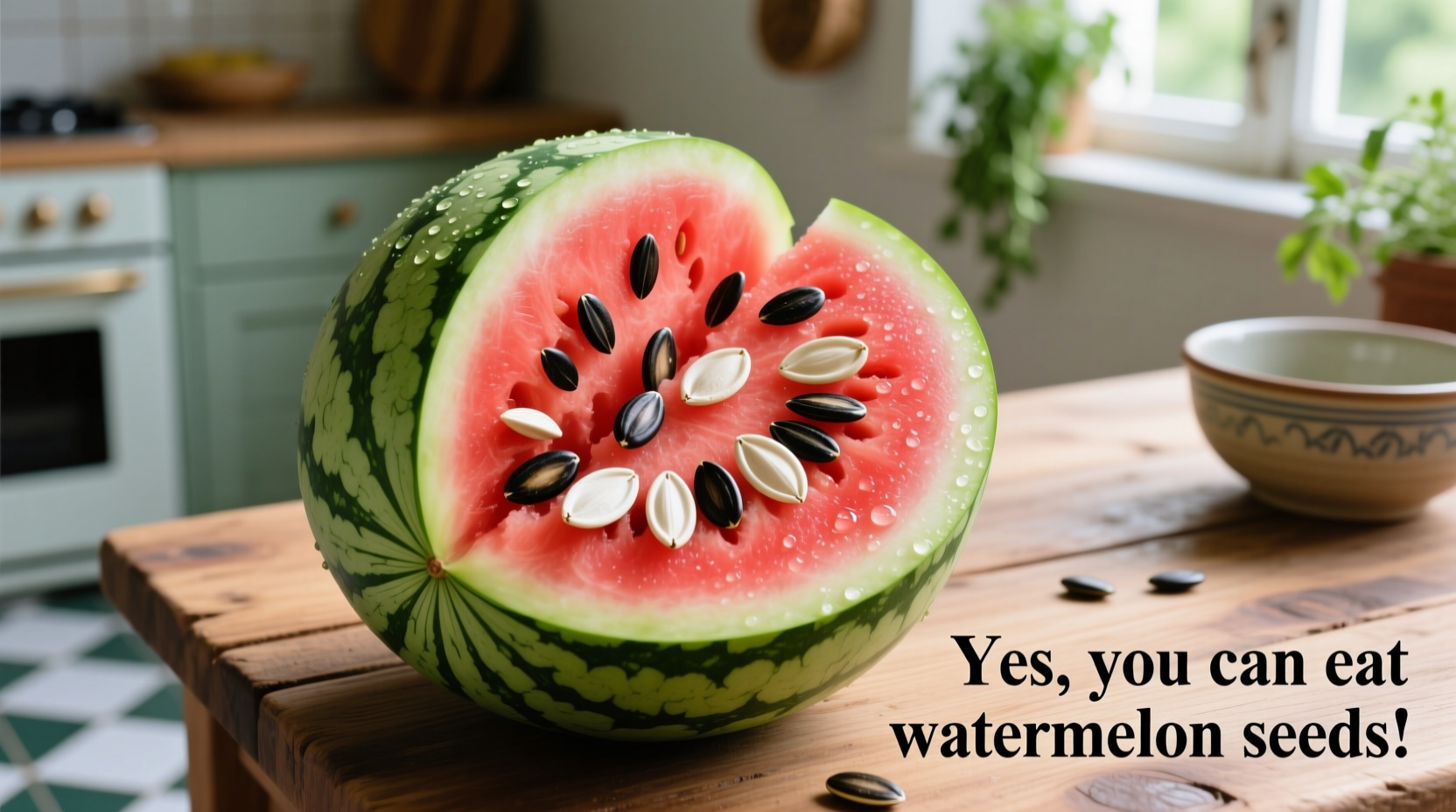Discover exactly how to incorporate watermelon seeds into your diet, their surprising nutritional benefits, and simple preparation methods that transform these often-discarded seeds into a healthy snack. This guide provides science-backed information you can trust, with practical tips for maximizing flavor and nutrition.
Understanding Watermelon Seed Safety
Many people wonder if watermelon seeds are toxic or dangerous to consume. The straightforward answer is no—they're completely safe. Unlike apple or cherry seeds that contain cyanogenic compounds, watermelon seeds lack harmful substances. The U.S. Food and Drug Administration confirms watermelon seeds pose no food safety risks when eaten as part of normal consumption (FDA Food Safety Guidelines).
While some worry about digestive issues, watermelon seeds are easily broken down during digestion. Contrary to the old myth that swallowing seeds causes plants to grow in your stomach, your digestive system processes them without complication. The only potential issue arises with excessive consumption of completely raw, hard seeds, which might cause minor digestive discomfort for sensitive individuals.
Nutritional Powerhouse: Watermelon Seeds Revealed
Watermelon seeds offer impressive nutritional benefits often overlooked. They contain protein, healthy fats, magnesium, zinc, and iron—nutrients essential for energy production, immune function, and overall health. Here's how they compare to other common snack foods:
| Nutrient | Watermelon Seeds (1oz) | Sunflower Seeds (1oz) | Almonds (1oz) |
|---|---|---|---|
| Protein | 8g | 6g | 6g |
| Magnesium | 140mg (33% DV) | 92mg (22% DV) | 76mg (18% DV) |
| Zinc | 2.2mg (20% DV) | 1.5mg (14% DV) | 0.9mg (8% DV) |
| Healthy Fats | 7g | 14g | 14g |
Data sourced from USDA FoodData Central (2023) shows watermelon seeds provide substantial nutritional value per serving. Research published in the Journal of Food Composition and Analysis confirms cucurbitacin E, a compound found in watermelon seeds, demonstrates potential anti-inflammatory properties when consumed in normal dietary amounts.
Two Types of Watermelon Seeds: What You Need to Know
Watermelons contain two seed varieties that differ in appearance and texture:
- Black/Mature Seeds: Hard, fully developed seeds with protective coating. These require preparation for optimal digestion and flavor.
- White/Immature Seeds: Soft, underdeveloped seeds commonly found in seedless varieties. These are completely edible without preparation.
Both types are nutritionally similar, but their preparation differs. Understanding this distinction helps you decide whether to spit them out or incorporate them into your meal.
Simple Preparation Methods for Maximum Enjoyment
Transform watermelon seeds from overlooked byproduct to delicious snack with these professional chef techniques:
Rinse and Dry Method (Quick Option)
After enjoying your watermelon, collect seeds in a bowl of water. Swirl to separate pulp, then spread clean seeds on paper towels. Let air-dry for 24 hours before eating. This simple process makes raw seeds more palatable while preserving nutrients.
Roasted Watermelon Seeds (Chef-Recommended)
For enhanced flavor and crunch:
- Rinse 1 cup seeds thoroughly
- Soak in salted water (1 tbsp salt per 2 cups water) for 10 minutes
- Spread on baking sheet lined with parchment paper
- Bake at 325°F (163°C) for 15-20 minutes, stirring occasionally
- Cool completely before storing in airtight container
This technique, perfected by culinary professionals, creates a satisfying crunch while making nutrients more bioavailable. For flavor variations, toss seeds with spices like cumin, chili powder, or nutritional yeast before roasting.

Common Misconceptions Debunked
Several myths persist about watermelon seeds that deserve clarification:
- Myth: Swallowing watermelon seeds causes appendicitis or intestinal blockage Fact: Medical research shows normal consumption poses no risk of intestinal complications
- Myth: Watermelon seeds contain toxins harmful to humans Fact: Unlike stone fruit seeds, watermelon seeds lack cyanogenic compounds
- Myth: Seedless watermelons contain no seeds at all Fact: They contain immature white seeds that are completely edible
Practical Applications for Different Situations
How you handle watermelon seeds depends on your specific circumstances:
For Families with Young Children
While watermelon seeds pose no toxicity risk, their small size presents a minor choking hazard for children under 4. For this age group, removing seeds before serving is recommended as a safety precaution, not because of toxicity concerns.
For Maximum Nutritional Benefit
To maximize nutrient absorption, pair watermelon seeds with vitamin C-rich foods. The iron in watermelon seeds becomes more bioavailable when consumed with citrus fruits or bell peppers. This culinary technique leverages food synergy for better nutrition.
For Gardeners and Sustainability
Instead of discarding seeds, consider planting them. Watermelon seeds germinate readily and can produce your own crop. This sustainable approach reduces food waste while connecting you to the complete food cycle. Simply dry seeds thoroughly before planting in well-draining soil.
When to Exercise Caution
While generally safe, certain situations warrant attention:
- Individuals with severe seed allergies should avoid watermelon seeds
- Those with digestive disorders like Crohn's disease might experience discomfort from large quantities of raw seeds
- Excessive consumption (more than 1/4 cup daily) could potentially cause digestive upset due to high fiber content
As with any food, moderation and individual tolerance determine appropriate consumption levels. Most people can safely enjoy watermelon seeds as part of a balanced diet without adverse effects.











 浙公网安备
33010002000092号
浙公网安备
33010002000092号 浙B2-20120091-4
浙B2-20120091-4